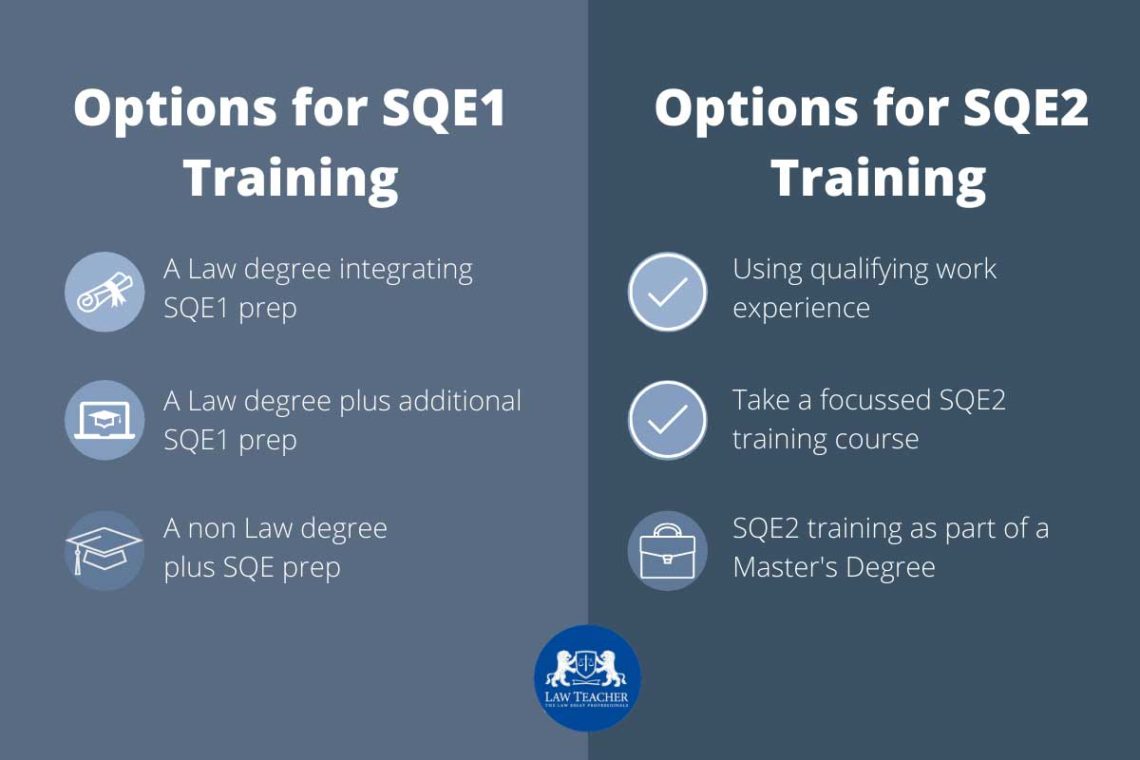The introduction of the all-new Solicitors Qualifying Examination (SQE) at the start of the 2021/22 academic year means that aspiring solicitors will all sit the same exams in order to qualify for the profession. Unless you’ve already embarked on one of the components of the current route – such as a qualifying law degree, or a training contract – the SQE will be the pathway by which you’ll qualify as a legal professional.
With the distinction between law and non-law graduates effectively removed and the Graduate Diploma in Law (GDL) and Legal Practice Course (LPC) being phased out, different methods of preparation for the new set of exams are emerging – here’s a guide to the different options that are open to you.
How does SQE preparation differ from LPC/GDL?
One of the crucial differences between the SQE and the previous qualifying route is that the new pathway only consists of the exam itself, rather than including the academic course in the lead-up to it as is the case with the LPC and GDL.
This means that graduates looking to take the two sets of SQE tests will now have the freedom to choose their own method of preparation. Before, the courses would be taken with approved institutions, with the framework of the preparation provided by the Solicitors Regulation Authority (SRA).
This key difference is reflected in the cost of SQE, which comes at around £4000 for all of the exams involved, a clear decrease from the cost of previous courses, which could reach up to £12,000 and beyond. That said, you should bear in mind that this figure excludes the cost of the preparation courses and materials you might choose from, with several options available to you.
What are my options in terms of SQE preparation?
Approved providers will also offer SQE preparation courses, tailored to the new specification, which like the LPC and GDL can be taken either full-time or part-time. These institutions include The University of Law, Nottingham Law School, Barbri and The City Law School.
For example, you could study on a part time course all the while undertaking a part of your Qualifying Work Experience – the new, more flexible alternative to training contracts which gives you a wider range of options in terms of legal placements that contribute towards qualification. Nevertheless, you should bear in mind that it’s not compulsory to have done a formal preparation course in the lead-up to taking the SQE.
Some providers integrate their SQE preparation within a postgraduate course with a wider scope – this is the case with The University of Law, who have designed an LLM Legal Practice course focusing on helping you pass these all-important exams, all the while focusing on the academic and practical side of the profession on the way to gaining a Masters degree. Other pathways offered by this provider, such as the MA in Law and the intensive SQE preparation course, also incorporate preparation for the exams.
Alternatively, you could opt for the self-study route, with a range of providers producing textbooks and study material to prepare you for the exams. For instance, The University of Law has published a range of study manuals covering each of the subjects covered, such as Contract Law, Dispute Resolution and Property Practice. You’ll also find comprehensive guides on the SQE that can help you prepare best – Skillfully passing the Solicitors Qualifying Examination published by Bloomsbury Professional in early 2021, for example.
In addition, the first set of exams you’ll take – SQE1 – will test you on your Functioning Legal Knowledge (FLK), the core theory needed to qualify as a solicitor. If you’re a law graduate, much of this content will have already been covered in past modules, meaning lecture notes and other course material can act as a good supplement to your main preparation method.
What can I expect ahead of taking SQE?
The first part of SQE will consist of multiple-choice questions testing your legal knowledge, which you’ll need to pass in order to move on to the more practical-oriented SQE2. This 180-question task, spread out over two papers, looks at various scenarios in which you might be led to apply the legal knowledge you’ve accrued so far in your studies. The second part of SQE will combine oral and written exams on topics including advocacy, case and matter analysis, and legal research.
Whichever method of preparation you find suits you best, it’s clear that thorough study is the best way to ensure success when undertaking the SQE exams. The new pathway comes into effect in the 2021/22 academic year, with the first opportunity to sit SQE1 is in November 2021.


